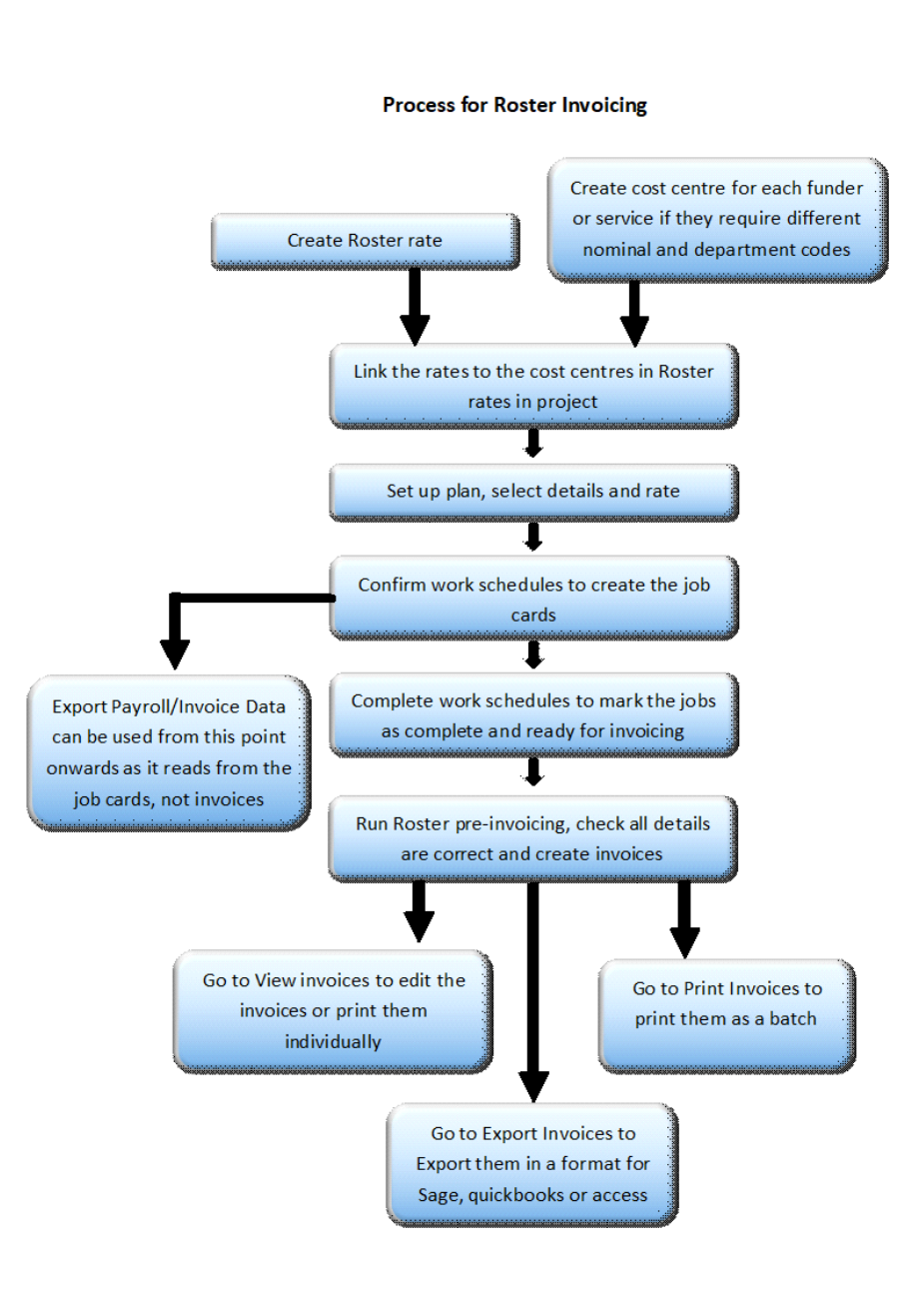Accounts Module (Administrator guide)
Contents
[hide]- 1 What is the Accounts Module?
- 2 Overview of the Accounts module
- 3 View Invoices
- 4 List Invoices
- 5 Print Invoices
- 6 General Pre-Invoice List
- 7 HP Pre-Invoice List
- 8 SW Pre=Invoice List
- 9 Export Invoices
- 10 Export Payroll/Invoice Data
- 11 HP Material Costs
- 12 HP Project Labour Costs
- 13 HP Standard & Project Nominal Codes
- 14 Rates
- 15 Rates in Projects
- 16 Cost Centres
- 17 Invoice Layouts
- 18 Invoicing Parameters
- 19 Payment Methods
- 20 VAT Codes
- 21 General Charge Rates
- 22 General Rates in Projects
What is the Accounts Module?
If you're using the Handyperson Module, you will probably be using the simple accounting tools that it provides - namely, charging for materials and work done, automatically working this out to give a cash total on the job card, and producing reports about how much money has been spent/charged.
We soon found that some of our clients needed more accounting functionality. More and more organisations are having to account for exactly what they have done, and provide an invoice to (for example) the council, rather than just working under an SLA. Individual Budgets are also having an impact (where the client is given benefits/grants and has to purchase and manage their own care/services, rather than the care/services being provided to them with no money changing hands). The Accounts Module is the answer.
Using the Accounts Module you can:
- Automatically generate invoices for club/clinic activity (when using the Clubs and Clinics module), support work (when using the Support Worker Module), and handyperson services (using the Handyperson module).
- Create invoices to the client directly, or invoice a funder/organisation on their behalf.
- Print invoices directly from Charitylog.
- Export invoices directly from Charitylog to the industry-standard Sage Line 50 accounting package, with department and nominal codes automatically assigned.
Overview of the Accounts module
The accounts module is fairly separate to the rest of the system, which from the point of view of setup is a good thing, because end users don't usually have to worry about it. Usually, beside any activity which can be invoiced for, there will be a button which looks like a pile of coins. Clicking on this will let you see which charge rate is being used for the activity.
There is a lot of setup to be done for the accounts module to work correctly, but once this is done, there is minimal ongoing work, apart from printing the invoices and exporting the data.
The accounts module is intended to be used to invoice for work once it has actually been carried out, but with some careful thought, it can be used to invoice for work in advance. Working out the best way to do this can be tricky and so you should discuss this with your assigned Charitylog trainer, and with the support department.
This flow chart shows the complete process, which we will use as the basis for this chapter.
Automatic accounts codes for people on your Charitylog system
One of the first things you will need to do as part of the setup of the Accounts module is to assign customer IDs to anybody who is going to receive an invoice. You may already have an internal system for accounts codes, or they may be provided for you by a funding body - but if neither of these apply, Charitylog will let you use People/Organisation IDs as accounts codes, with a prefix if you want to apply one. This can be done in Operational Rules.

